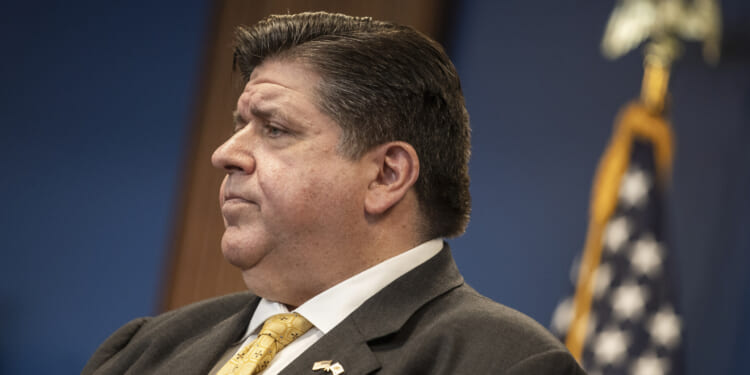Illinois risks millions in penalties under new federal law because of errors in determining who qualifies for food assistance. To protect taxpayers and struggling families, the state must increase its administrative precision.
Illinois taxpayers could be on the hook for millions in penalties if the state makes too many mistakes for people on food assistance.
According to the U.S. Department of Agriculture, Illinois’ Supplemental Nutrition Assistance Program error rate, how often the state makes a mistake in determining who qualifies for federal food aid, was 11.56% in 2024. That’s worse than 38 other states and higher than the national average.
Failing to address the error rate could cost the state millions under a new federal law. But following the lead of other states could provide a path forward.
Illinois’ 12% error rate could cost the state $705 million annually
While SNAP underpayments were rare, at less than 1%, overpayments accounted for 10.6% of Illinois’ SNAP errors in 2024. Because of these administrative blunders, Illinois likely miscalculated or misdirected about $520.2 million worth of benefits of the $4.5 billion distributed in 2024.
This is part of a longer trend. Illinois’ SNAP errors have grown steadily since 2003, nearly doubling even before the pandemic. Research shows payment mistakes arise when state agencies fail to properly verify participant eligibility, such as not cross-checking applicant information or skipping periodic reviews to remove those who no longer qualify from receiving benefits.
To be eligible for SNAP in Illinois, participants must:
- Have a gross household income at or below 165% of the federal poverty level, or at or below 200% if their household includes a member who is disabled or 60 years of age or older.
- Have net household income at or below 100% of the federal poverty level.
- Hold assets at or below $4,500, if exceeding the 165% federal poverty limit.
- Work 20 hours per week or participate in an approved employment training program, if ages 18 to 52 and does not qualify for exemptions (i.e. pregnancy, disability or caring for a dependent child).
- Be a U.S. citizen or qualified legal resident living in Illinois.
Starting in 2028, Illinois’ inaccuracy in determining eligibility and benefits could result in steep penalties. In the past, SNAP benefits were fully funded by the federal government, but the “One Big Beautiful Bill” Act will now tie federal funding to administrative precision.
Under the new law, only states with error rates below 6% will receive full funding. States with higher error rates will be required to reimburse the federal government up to 15% of total costs.
Based on its 2024 error rate, Illinois could receive the maximum penalty of 15%, costing $705 million annually. With nearly two million Illinoisans depending on SNAP benefits and the state’s ongoing fiscal challenges, including structural deficits, soaring pension liabilities and an already high tax burden, Illinois cannot afford such a blow.
Illinois should follow the lead of 38 states with lower error rates
Illinois must reduce its SNAP error rate. Even just a one or two point drop, matching Michigan, Ohio and Texas’ rates, could save the state $235 million a year. Bringing the error rate down further to 7.1% would double those savings. And at under 6%, Illinois would pay nothing.
What’s more, no one eligible for SNAP would be affected. The goal under the bill is to ensure only those who are truly eligible receive the benefits.
To protect both taxpayers and preserve resources for vulnerable families, policymakers should look to the 38 other states with lower error rates and enact sensible quality control measures. This includes:
- Upgrading technology systems to improve payment accuracy.
- Requiring more frequent data cross-checks and household recertification to identify discrepancies and ensure participant information is updated.
- Enhancing coordination and communication across SNAP offices.
- Provide ongoing staff training to increase awareness of error trends and strategies to strengthen oversight.
- Closing broad-based categorical eligibility loopholes.
Illinois will have to increase its administrative due diligence to restore public trust and program integrity. With sensible reform, the state can stop waste, fraud and abuse and ensure aid reaches those who truly need it.










